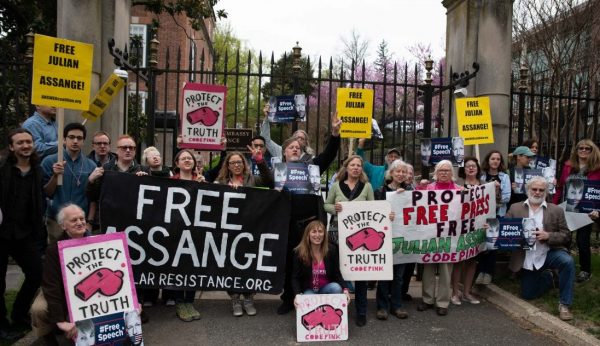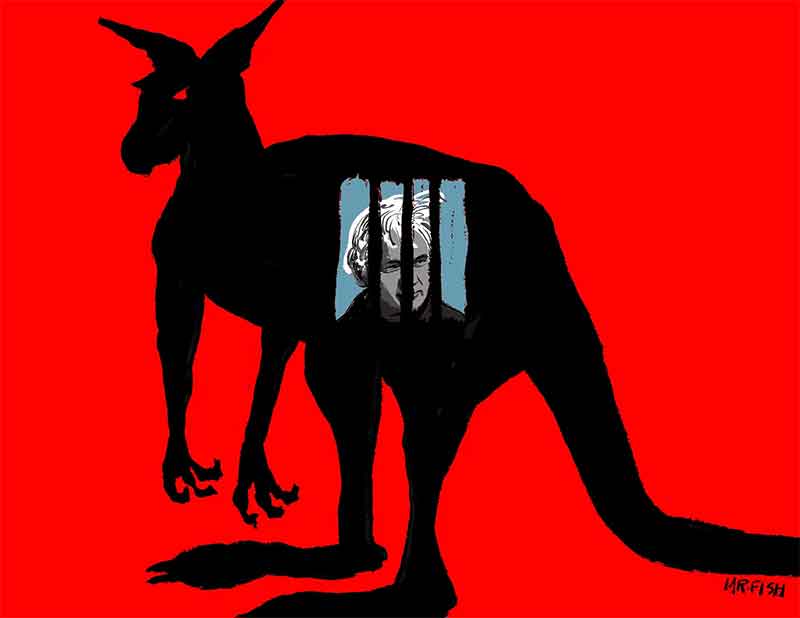
The British Home Secretary has signed a request for the extradition of WikiLeaks co-founder Julian Assange to the US, where he is accused of violating the Espionage Act. Speaking on BBC Radio 4’s Today program, Sajid Javid said that he signed and certified the papers on Wednesday, with the order going before the UK courts on Friday.
Javid said, he’s rightly behind bars. There’s an extradition request from the US that is before the courts tomorrow but yesterday I signed the extradition order and certified it and that will be going in front of the courts tomorrow.
Javid’s decision follows news last week that an attempt to extradite Assange to Sweden had had a setback after a court in Uppsala said he did not need to be detained.
The ruling by the district court prevented Swedish prosecutors from applying immediately for an extradition warrant for Assange to face an allegation of rape dating back to 2010. Assange denies the accusation.
Assange is serving a 50-week sentence in Britain for skipping bail after he spent seven years in the Ecuadorian embassy in London attempting to avoid extradition to Sweden.
Swedish prosecutors dropped their rape investigation in 2017 but reopened it after Ecuador rescinded its offer of asylum to Assange in April this year and allowed British police to arrest him.
Thomas Garner, an extradition lawyer at Gherson Solicitors, said Javid’s certification of the request was “an important though merely procedural step” to start the extradition process.
“I would expect the court to set a preliminary timetable for the extradition process tomorrow,” he said. “It is likely to be many months before any hearing at the magistrates court and of course either side may then seek to appeal that decision in due course. Despite this, the Swedish authorities will be monitoring the process carefully as the further down the line the US proceedings get the harder it might become for the home secretary to give precedence to any competing request.”
The US justice department has filed 17 new charges against the Australian journalist. In May, he was additionally charged with one count of conspiring with Chelsea Manning, the former intelligence analyst and whistleblower, to gain access to the US Pentagon network.
Assange is currently serving a prison sentence in the UK for jumping bail. The 47 year-old was too ill to appear last month at the latest hearing at Westminster magistrates court in relation to the US request.
The hearing has been rescheduled for Friday and, depending on the state of his health, may take place at Belmarsh prison, where he is being held.
The journalist spent over six years living under asylum in the Ecuadorian Embassy in London, out of fear Britain would hand him over to the US. He was forcibly dragged out of the building in April after the South American nation decided to evict him.
His arrest and subsequent imprisonment prompted much public outcry.
The WikiLeaks co-founder’s health has been of particular concern to his supporters. His lawyer, Per Samuelson, told reporters after visiting Belmarsh at the end of May that “Assange’s health situation… was such that it was not possible to conduct a normal conversation with him.”
The UN Special Rapporteur on Torture, Nils Melzer, who visited Assange in Belmarsh, claimed that he showed clear signs of degrading and inhumane treatment, which only added to his deteriorating health.
The publishing of the Iraq War footage showing a US Apache helicopter shooting dead 12 people, including two Reuters staff, is one of the most significant and talked-about exposures made by his WikiLeaks organization.
Just one week before Hillary Clinton became the Democratic Party’s nominee for president in 2016, WikiLeaks released thousands of emails showing that top party figures had collaborated to ensure that Senator Bernie Sanders did not win the nomination. The leaks forced DNC chair Debbie Wasserman-Schultz to resign.

















































